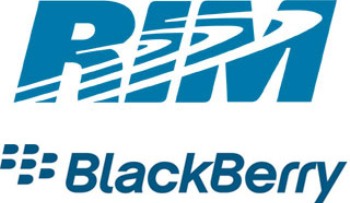RIM Beefs Up Calender Services With Tungle Buy

RIM has acquired calender application maker Tungle in its latest effort to combat Android and iOS
Research In Motion has announced the acquisition of Tungle, which makes an application that syncs users’ calendars in order to streamline scheduling and eliminate double-bookings.
“Tungle is a leading provider of cloud-based calendar and scheduling services that makes it easy for users to share their availability and schedule appointments regardless of their choice of desktop, mobile or cloud-based calendar,” read an 27 April note posted on Inside BlackBerry, the Official BlackBerry Blog. “Tungle connects users on Google, Yahoo, Facebook, TripIt, Plancast, Outlook, iCal, LotusNotes, LotusLive, and Windows Live.”
Tungle joins other recent RIM acquisitions designed to bolster the BlackBerry manufacturer’s software portfolio. In February 2010, RIM purchased Gist, whose web-based application manages personal and professional contacts from Microsoft Outlook, Gmail, Yahoo Mail, Facebook, Twitter, LinkedIn and Salesforce.com. Gist’s algorithms prioritize contacts based on frequency and timing of messages – a potentially useful feature for any messaging service.
Apps Revamp
RIM could be looking to buttress its software offerings at a time when the company faces not only increased competition from other smartphone makers, but the need to make its new PlayBook tablet a hit with consumers and businesses. A variation of the PlayBook’s QNX-based operating system will reportedly find its way onto BlackBerry smartphones, which currently run the BlackBerry 6 OS.
 New messaging and calendar features could allow RIM to maintain its traditionally strong position in those areas. Tungle and Gist assets could also inform the native email and calendar apps due to appear on the PlayBook, although RIM has offered no firm release date for those updates.
New messaging and calendar features could allow RIM to maintain its traditionally strong position in those areas. Tungle and Gist assets could also inform the native email and calendar apps due to appear on the PlayBook, although RIM has offered no firm release date for those updates.
Currently, PlayBook owners can only access Hotmail, Yahoo Mail, Gmail, and AOL Mail accounts via icons that connect to a built-in browser – that is, unless they use the BlackBerry Bridge feature, which displays data from a nearby BlackBerry on the tablet’s larger screen.
Playbook Impact
The PlayBook arrived on store shelves 19 April, following a spate of lukewarm and negative reviews. Specifically, many reviewers cited a lack of apps and a user interface that at time felt “half-baked” or unfinished, even as the tablet’s high-end hardware attracted some praise.
RIM has priced the PlayBook at $499 (£301) for the 16GB model, $599 (£361) for the 32GB model and $699 (£422) for the 64GB version – enough to place the tablet roughly in the middle of current tablet pricing, and toe-to-toe with the iPad 2, whose 16GB version retails for $499, 32GB for $599 and 64GB for $699.
Longer-term, however, some analysts position RIM as a notable – but not dominant – player in the tablet market. According to an 11 April report from research firm Gartner, Apple’s iOS will dominate that market through 2015, with a 47.1 percent share, followed by Google Android at 38.6 percent and RIM with 10 percent.